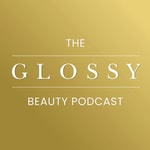The Glossy Beauty Podcast – Details, episodes & analysis
Podcast details
Technical and general information from the podcast's RSS feed.

The Glossy Beauty Podcast
Glossy
Frequency: 1 episode/7d. Total Eps: 345

Recent rankings
Latest chart positions across Apple Podcasts and Spotify rankings.
Apple Podcasts
🇺🇸 USA - fashionAndBeauty
31/07/2025#37🇫🇷 France - fashionAndBeauty
31/07/2025#41🇺🇸 USA - fashionAndBeauty
30/07/2025#56🇫🇷 France - fashionAndBeauty
30/07/2025#35🇺🇸 USA - fashionAndBeauty
29/07/2025#38🇺🇸 USA - fashionAndBeauty
28/07/2025#49🇺🇸 USA - fashionAndBeauty
27/07/2025#42🇨🇦 Canada - fashionAndBeauty
26/07/2025#97🇩🇪 Germany - fashionAndBeauty
26/07/2025#99🇺🇸 USA - fashionAndBeauty
26/07/2025#35
Spotify
No recent rankings available
Shared links between episodes and podcasts
Links found in episode descriptions and other podcasts that share them.
See allRSS feed quality and score
Technical evaluation of the podcast's RSS feed quality and structure.
See allScore global : 58%
Publication history
Monthly episode publishing history over the past years.
Estée Lauder VP Chloe Green-Vamos talks data, AI and reverse mentorship
jeudi 5 septembre 2024 • Duration 46:55
Industry veteran Sarah Creal on creating a brand for women over 40: 'I was part of the problem'
jeudi 29 août 2024 • Duration 46:21
DC attorney Katlin McKelvie on forming MOCRA in the Senate and the 'black box' deadline coming next from FDA
jeudi 20 juin 2024 • Duration 35:59
How 'rebelling' against norms led Allison McNamara to found Mara Beauty
jeudi 22 septembre 2022 • Duration 30:35
Boy Smells' Matthew Herman on throwing the old rules of fragrance out the window
jeudi 15 septembre 2022 • Duration 38:19
BeautyStat's Ron Robinson on putting 'facts and data' first
jeudi 8 septembre 2022 • Duration 38:25
The Beauty Health Co.’s Andrew Stanleick on building ‘a company, a culture and a brand’
jeudi 1 septembre 2022 • Duration 42:16
Urban Skin Rx's Rachel Roff on how virality on TikTok 'forever changed our brand'
jeudi 25 août 2022 • Duration 40:02
Kate McLeod on bringing a baking background to beauty: 'The pastry chef in me came alive'
jeudi 18 août 2022 • Duration 47:35
D.S. & Durga founders on building their business: 'There are no rules'
jeudi 11 août 2022 • Duration 43:00